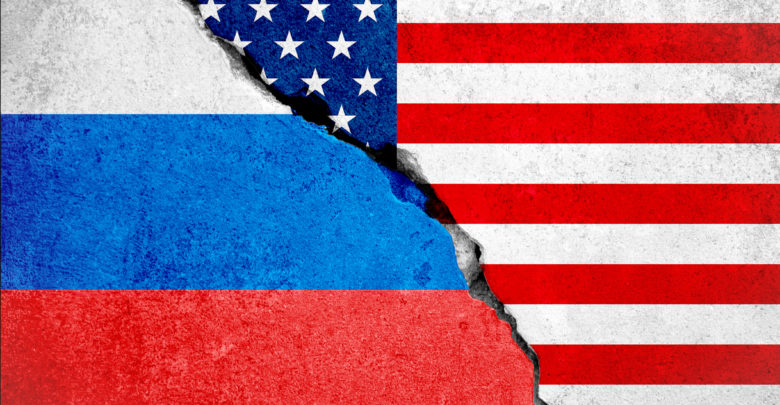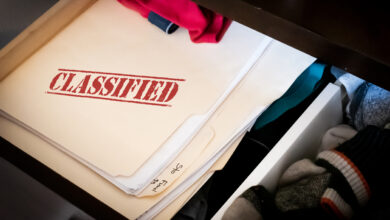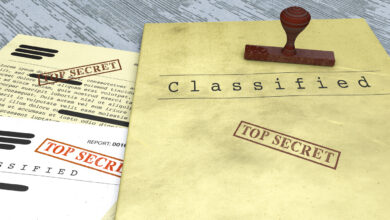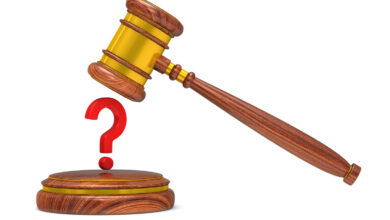Is Russia’s Hold On Trump Even Stronger Than We Think?
One journalist offers "a plausible theory of mind-boggling collusion"

What if the known facts about Donald Trump’s Russia Connection are just the tip of a much larger iceberg? With Trump set to meet with Vladimir Putin next week, this is a good time to consider what we don’t know. And maybe to engage in some informed speculation.
Maybe we shouldn’t be too quick to dismiss the possibility that Mueller is uncovering a Russian-made bombshell
Last year, I wrote an article for the Huffington Post entitled “Four Ways To Impeach Trump.”
The first path to impeachment was the Russia Connection.
Since then, the conventional wisdom has shifted, at least a bit. Commentators seem more skeptical that the Mueller investigation will turn up evidence that Trump was criminally implicated in Russia’s interference with the 2016 presidential election. Instead, most of the focus has been on after-the-fact obstruction of justice related to the investigation itself, not the underlying crime.
But maybe we shouldn’t be so quick to dismiss the possibility that Mueller is uncovering a Russian-made political bombshell.
A recent article in New York Magazine suggests that the Russia Connection may loom as large as ever as a threat to Trump’s presidency. In what may be the most comprehensive summary of the Russia story to date, Jonathan Chait’s article, “Prump/Tutin: Will Trump Be Meeting With His Counterpart — Or His Handler?” lays out a compelling factual narrative, accompanied by some alarming hypotheses.
Chait likens the unfolding of the Russia scandal to walking into a dark cavern where “every step reveals that the cave runs deeper than we thought.” Most people already sense that the cave runs at least a little deeper than we know. For instance, most people following the scandal already wonder what if Don Jr., Jared Kushner and Paul Manafort told Trump all about their meeting with a Russian lawyer in Trump Tower? What if Trump’s campaign advisers made promises to Russia about lifting sanctions? What if Trump and Kushner are tied together in shady Russian investments?
Chait doesn’t pretend to have the answers to these questions. Instead, he suggests that they may drastically understate the seriousness of Trump’s Russia problem.
It could be much worse than that.
In what he calls “a plausible theory of mind-boggling collusion,” Chait raises the possibility that “the dark crevices of the Russia scandal run not just a little deeper but a lot deeper.” He lays out the narrative in painstaking detail, showing how the dots might be connected to reveal “the bizarre spectacle of Reagan’s party’s abetting the hijacking of American government by a former KGB agent.”
Viewed in that light, Chait suggests, the private face-to-face meeting between Trump and Putin later this month may be “less a negotiation between two heads of state than a meeting between a Russian-intelligence asset and his handler.”
Alarming stuff, to be sure, and Chait is smart enough to know that advancing such theories risks being dismissed as a conspiracy nut. To his credit, he is careful to make clear that his “plausible theory” is just that, a theory. The key word is “plausible,” meaning that he is suggesting only one interpretation of the facts, not the only one. He readily concedes that it is possible, although not likely, that “every trail between Trump Tower and the Kremlin extends no farther than its point of current visibility.”
The building blocks of kompromat, greed, stupidity, ego and sexual appetite, are all traits Trump has in abundance
I was more impressed by the cumulative weight of Chait’s layout of the facts than I was with his hypothesis that Trump might be a Russian intelligence asset, and Putin his handler.
The narrative, according to Chait, goes back to at least 1987, whereas the conventional thinking has been that the scandal had its genesis in Trump’s 2013 visit to Russia for the Miss Universe pageant.
Chait points to two events that came together in 1987. First, Trump signaled his transformation from an aggressive, publicity-seeking New York developer to a hyper-nationalist symbol of capitalism with a full-page ad in the New York Times attacking Japan for relying on the U.S. to defend it militarily. This was the beginning of Trump’s 30-year obsession that our global alliance commitments were more of a curse than a blessing, a drain on the national treasure.
Second, Trump visited Russia.
It was a time when Russian intelligence agents were known to lure or entrap not only political leaders, but also people they saw as having the potential to become leaders. The Russians routinely collected kompromat, compromising material that could be used to blackmail political leaders and other prominent people.
The building blocks of kompromat are the same everywhere: greed, stupidity, ego, and sexual appetite. All of which, Chait politely observes, “are traits Trump has in abundance.”
Amen to that.
Trump clearly would have been targeted for surveillance during his 1987 visit to Moscow. He was a high-profile American businessman who had been invited to Russia by Yuri Dubinin, the Soviet ambassador, to discuss a building in Moscow. He stayed in the Lenin Suite at the National Hotel, which surely had been bugged by Russian intelligence.
Two months after returning from Moscow, Trump published “an open letter from Donald J. Trump on why America should stop paying to defend countries that can afford to defend themselves.” Lest there be any doubt, the country against whom America was defending its allies was Russia.
None of this, of course, is proof that Trump has colluded with or been blackmailed by Russia. Chait doesn’t claim that there’s only one way to connect the dots.
Still, the dots are interesting, and Trump’s longstanding antipathy to NATO, the EU and western defense alliances dovetails nicely with Putin’s determination to undermine them.
While I view Chait’s more extreme hypotheses with skepticism, I have no quarrel with his view that “the most likely outcome” is that the Russia story goes deeper than what we have already discovered. We just don’t know how much deeper.
And that makes me think that if a journalist can put together such a damning narrative using only facts known to the public at large, what can Robert Mueller do with tools like electronic surveillance, subpoena power, the threat of prosecution, access to millions of documents, and a legal team staffed by some of the smartest, toughest lawyers in the country?
So let’s not remove the Russia Connection from the list of paths to impeachment just yet.





Exactly what has been keeping me up! Why on earth a one-on-one!